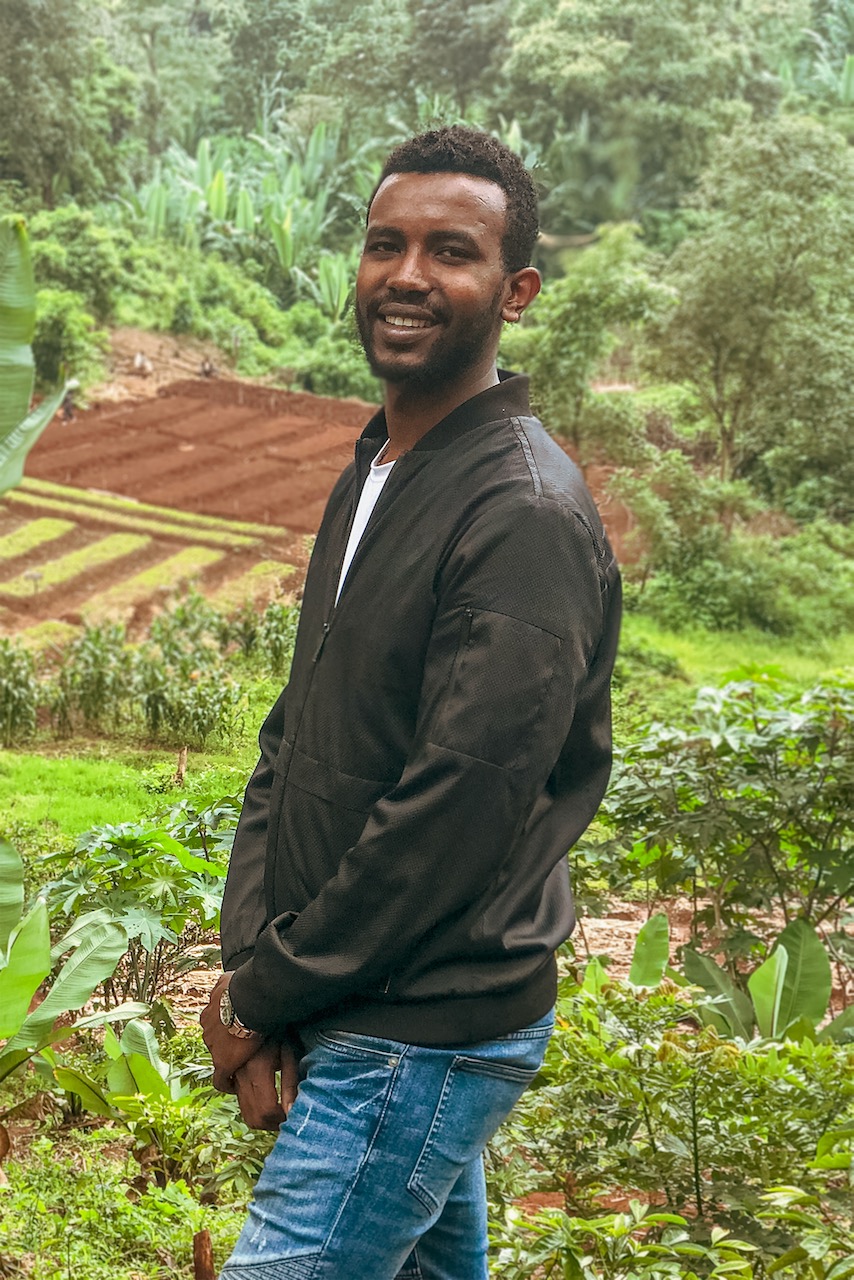
Addictive World of Coffee
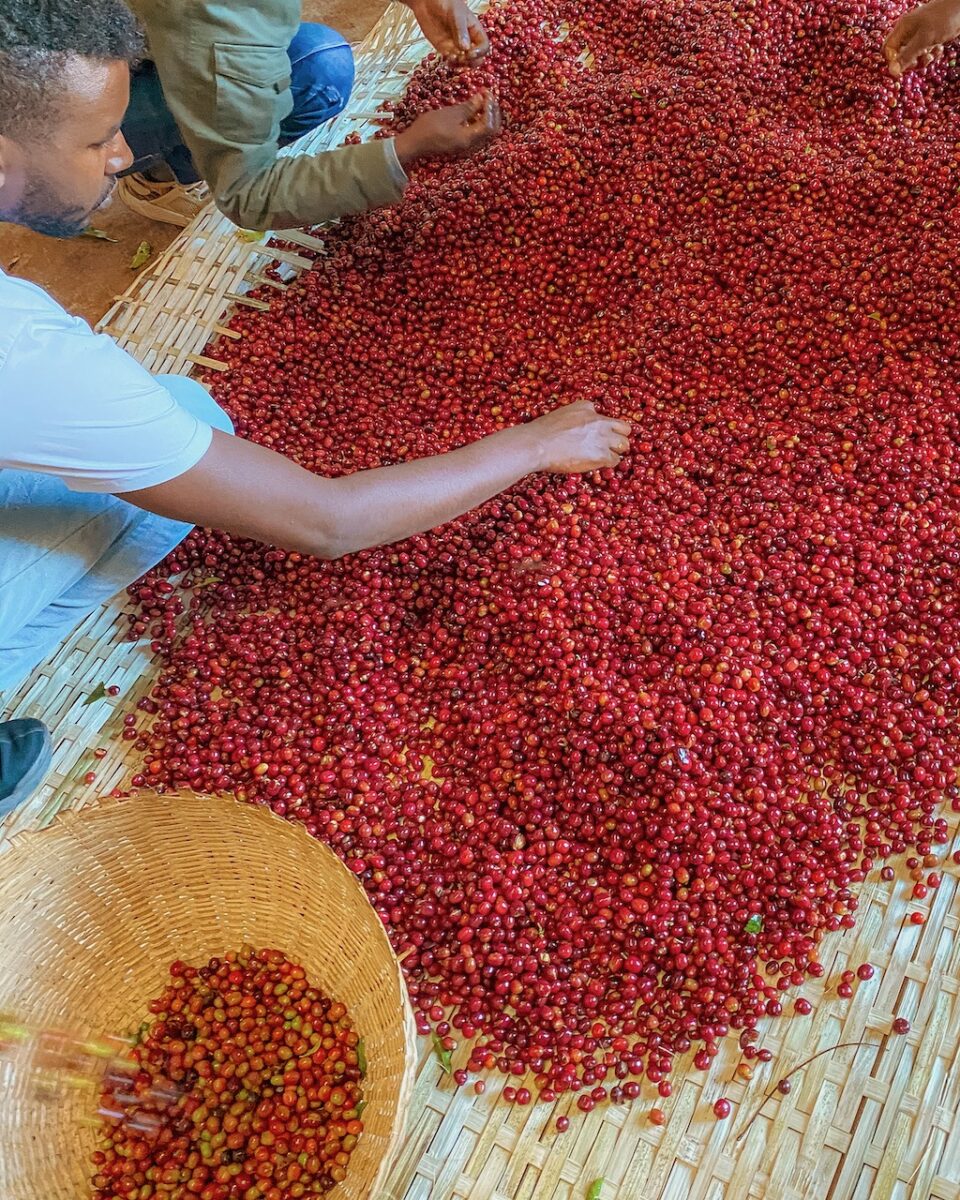
In a traditional coffee producing country, major changes are afoot. In Ethiopia, an increasing number of young coffee producers are gaining a morale boost, with the easing of ECX regulation and the start of the Cup of Excellence. Among them is Biniyam Aklilu. We got to know Biniyam through the introduction of a Japanese roaster. Biniyam tailors processing methods in response to customers’ requests and creates original lots, we were told. Our interest was piqued by this flexibility, a trait not often seen among Ethiopian producers.
Now at 28 years old, Biniyam seems to have the potential to evolve in every possible way. We also felt his ambitions, as if he always had something more to desire. Above all, his samples were so high-quality that we were overcome with emotion. That is why we hoped to start a collaboration with Biniyam. It is this quality that brought him back to Ethiopia from the US. And it will be a milestone he seeks to surpass to reach a new height.
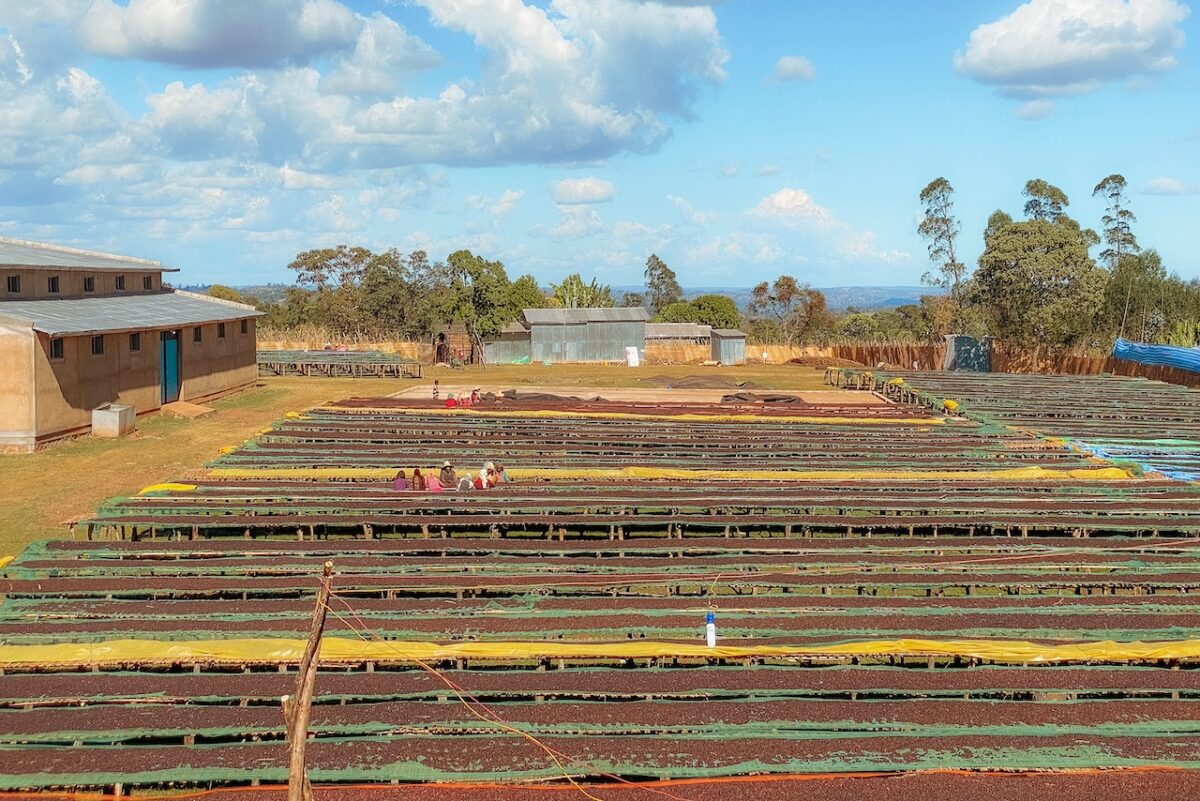
How Nardos Coffee came to be
Nardos Coffee dates back to the 1960’s, when Biniyam’s great-grandfather started coffee production in Guji. Later on, his grandfather built a washing station there. That was the first ever privately-run washing station in the region. Then, in 1998, Biniyam’s father founded a coffee export company. In three generations, the family has pulled off this major undertaking, leaving an indelible mark on the history of Ethiopian coffee.
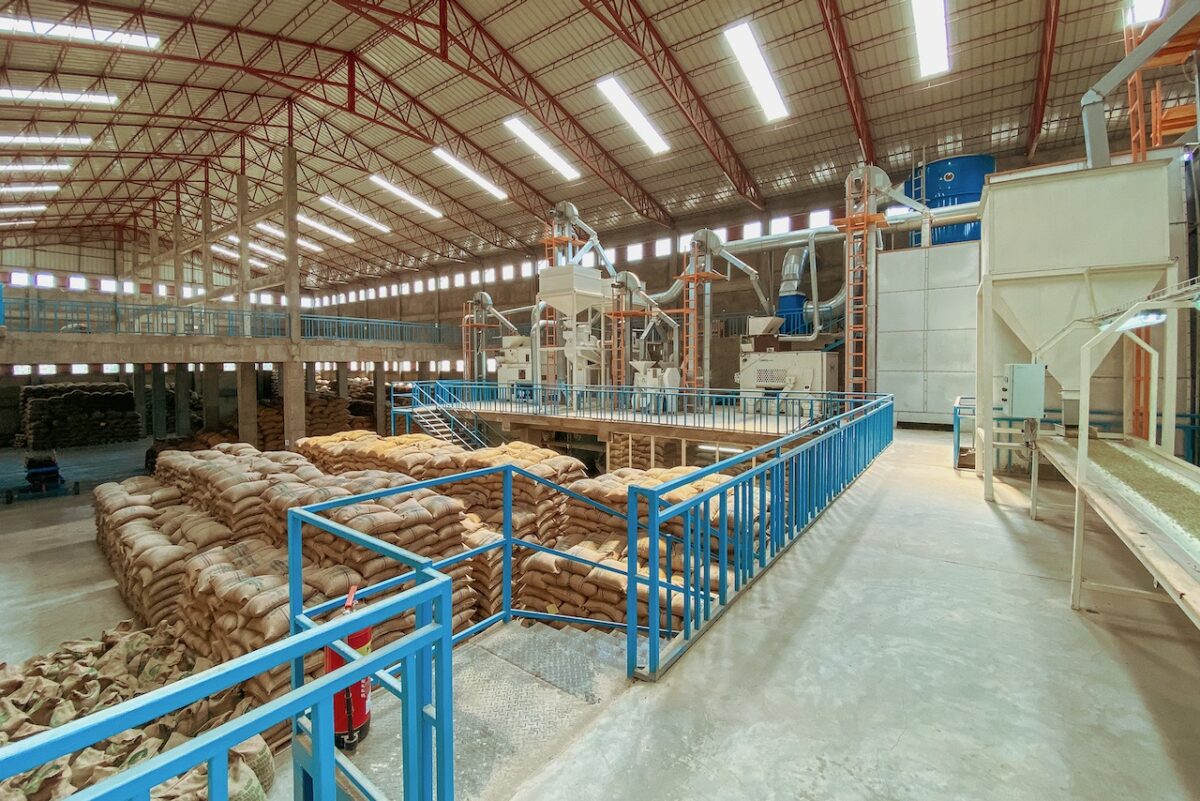
Today, Nardos Coffee runs nine washing stations and six dry mills in Guji, Yirgachefe, and Uraga, with a workforce of 115 permanent employees.
“Our greatest strength is that all our family members and relatives are coffee producers,” Biniyam says. “Every time I went to an Aklilu’s house as a child, there was a coffee farm. Having grown up in such an environment, I know everything about coffee. My great-grandfather had at least 15 children, and divided his plot for each child. So right now, the farm we are left with isn’t so large.”
It wouldn’t be an overstatement to say Biniyam is one of the elite of Ethiopian coffee. But he went through various experiences before he took up his current managerial position.

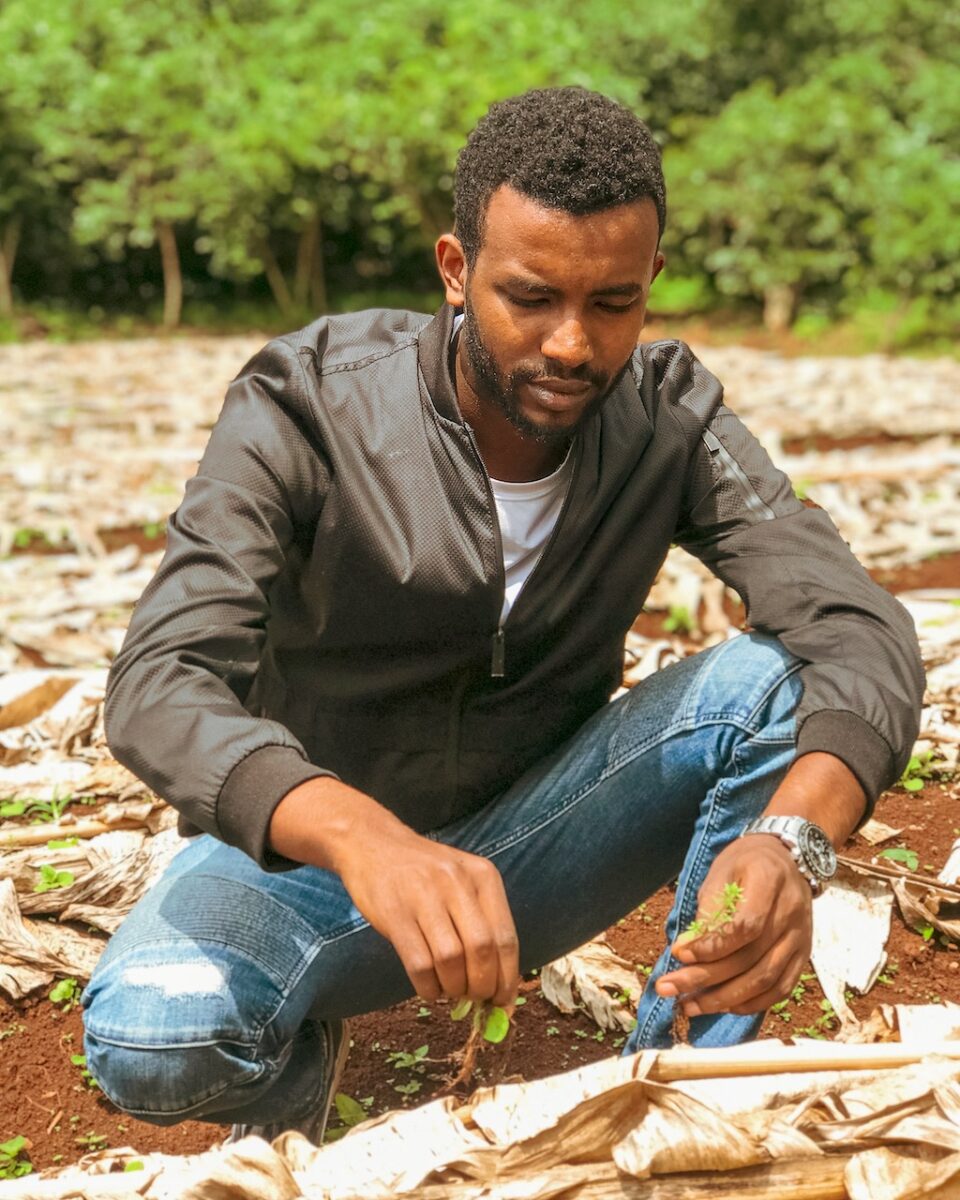
Addictive world of coffee
Biniyam was born in Addis Ababa, the capital of Ethiopia. When he was nine, he moved to Guji, where he spent three years. With frequent visits to his family’s and relatives’ houses and to his father’s washing station, it didn’t take long before Biniyam fell in love with coffee.
“I grew up with coffee, so it was hard to become interested in jobs outside of coffee. In fact, I’d never thought about doing anything other than coffee production.”
After returning to Addis Ababa when he was 12, Biniyam moved to the United States during a summer break at the age of 16, and entered high school in the state of Virginia. He went on to start university in New York and studied marketing. His main purposes were to learn English and build relationships with his clients in the US.
“In every state, I had at least one client of my father’s company. Even in the US, my life was inseparable from coffee. When I told people in the US about my family business, I often received positive responses like, “I love coffee!” That was part of my motivation to keep working in coffee.”
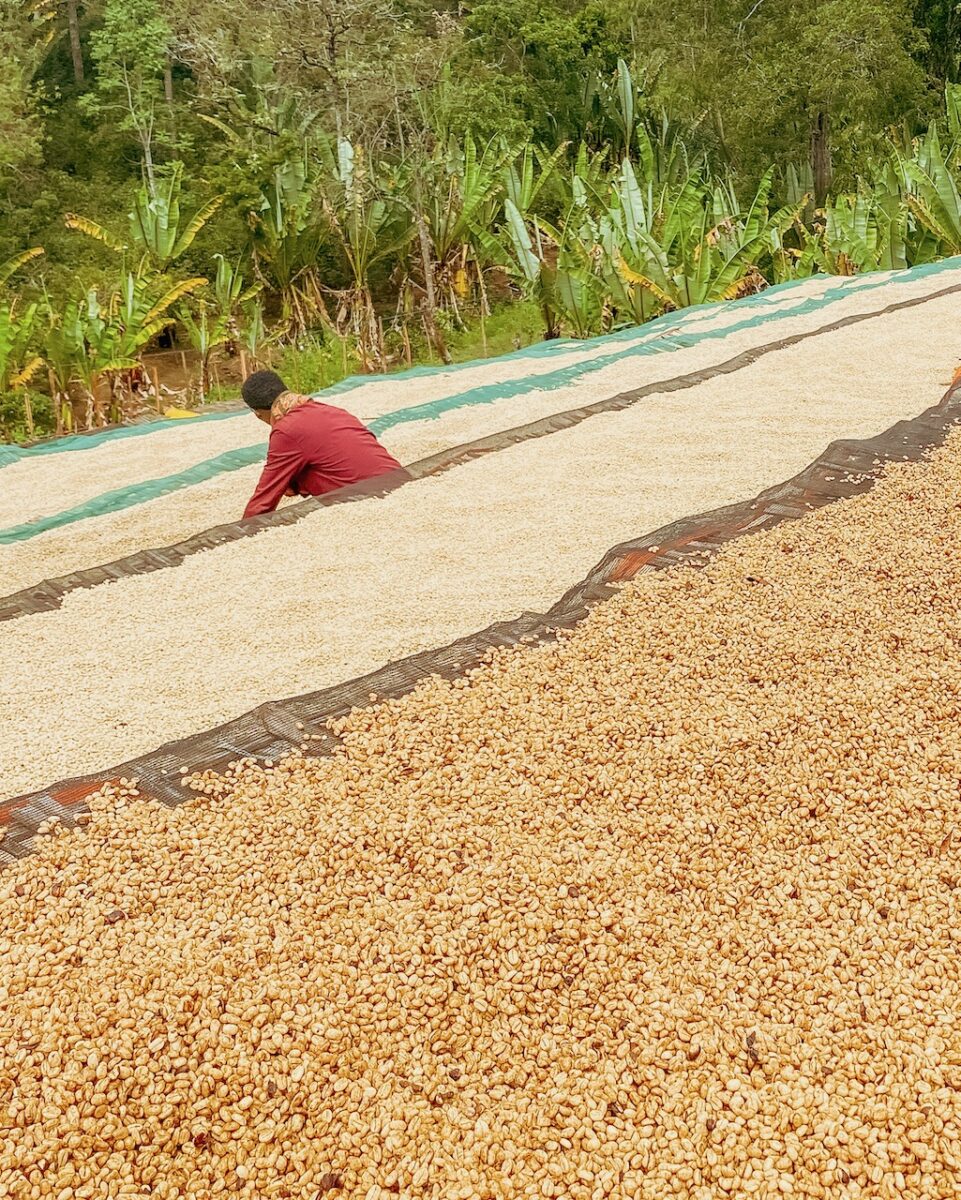
Biniyam dropped out of university in 2013, when he was 20, and returned to Ethiopia.
“I thought I was able to succeed faster in Ethiopia than in the US.”
By leaving Ethiopia, Biniyam had a chance to revisit the value of being a coffee producer in the country, something he had taken for granted at home.
Upon returning home, Biniyam started helping out his father at his farms and washing stations. After a four- to five-month season of working as a cashier, Biniyam took charge of all four washing stations where he learned about processing. He went on to relocate to Addis Ababa, where he worked as marketing manager for one year. After another three years of handling export operations, Biniyam became manager at Nardos Coffee.
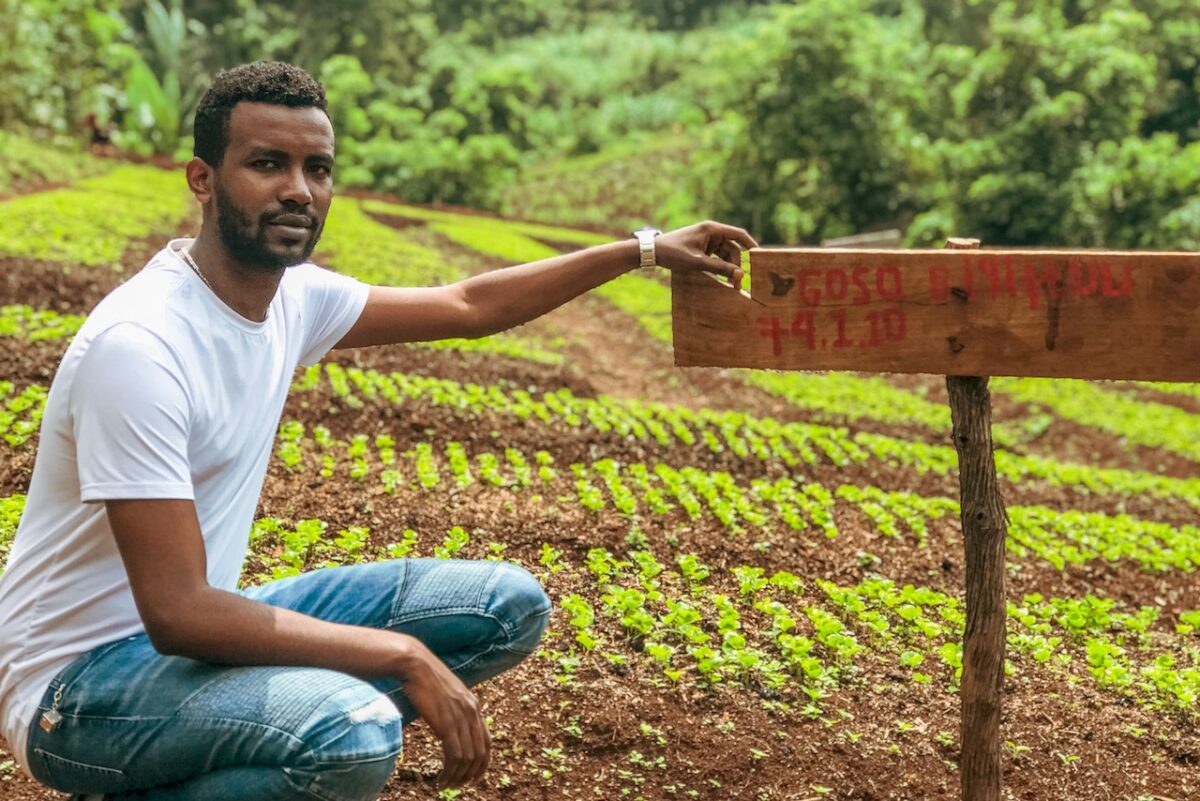
Now at 28 years old, he says his job is more fulfilling than he expected.
“When I was managing exports, I had chances to visit various countries and meet many coffee producers and buyers. Now, I have a deeper knowledge of coffee. And I realize that my father was right when he told me that once I became involved in coffee, I would never be able to leave it. My love for coffee only grows stronger, and all my attention is focused on coffee. It doesn’t matter whether business is profitable or not. I have such an immense passion, almost addiction, in my heart.”
Ethiopian coffee is deeply ingrained in Biniyam’s soul. It is never a matter of whether he likes it or not, but rather something of a destiny he is meant to live.

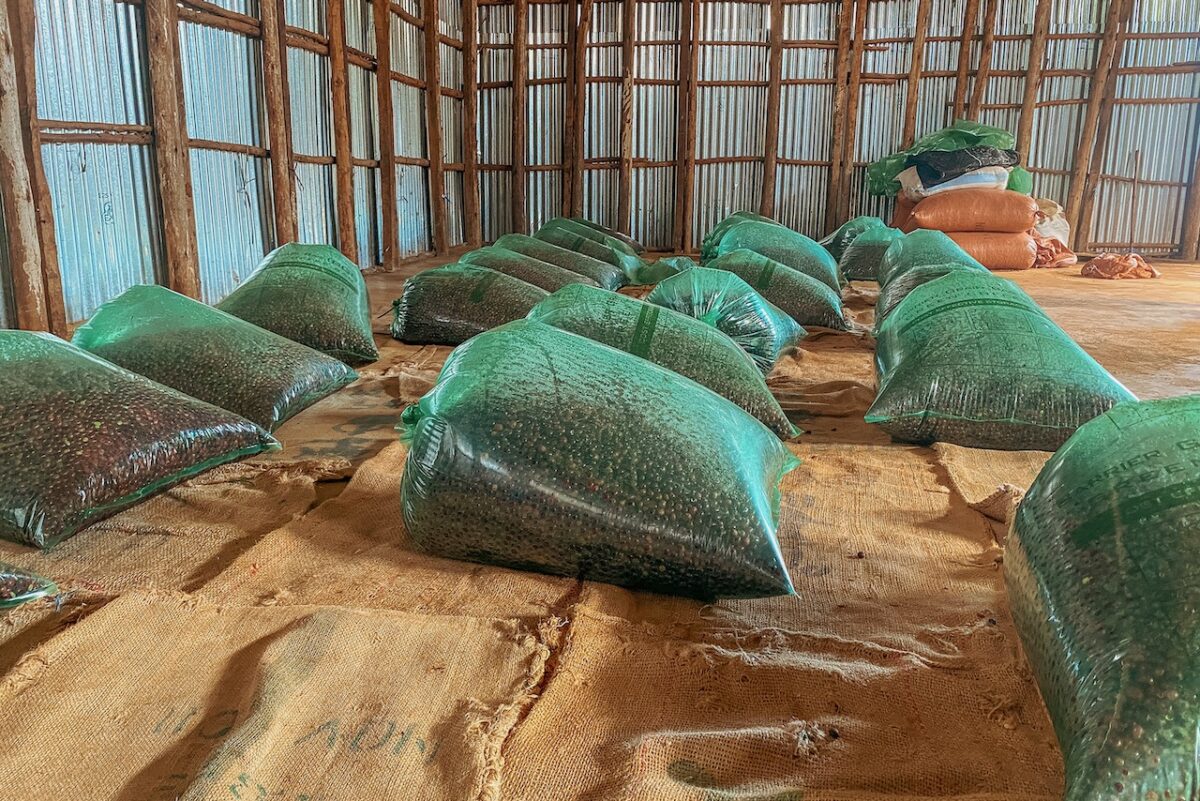
Nardos Coffee’s quality
When cupping coffees from Nardos Coffee, one notices their beautiful consistency. Through our conversation with Biniyam, we were able to learn the secret behind the quality.
“Small things matter, like building a washing station at an altitude of 2,000 meters or higher, fermenting and drying coffee on time, and letting harvested coffees cool before moving them into a warehouse to keep them from drying too much. Efforts like these, no matter how small, make a big difference in the quality of coffee.”
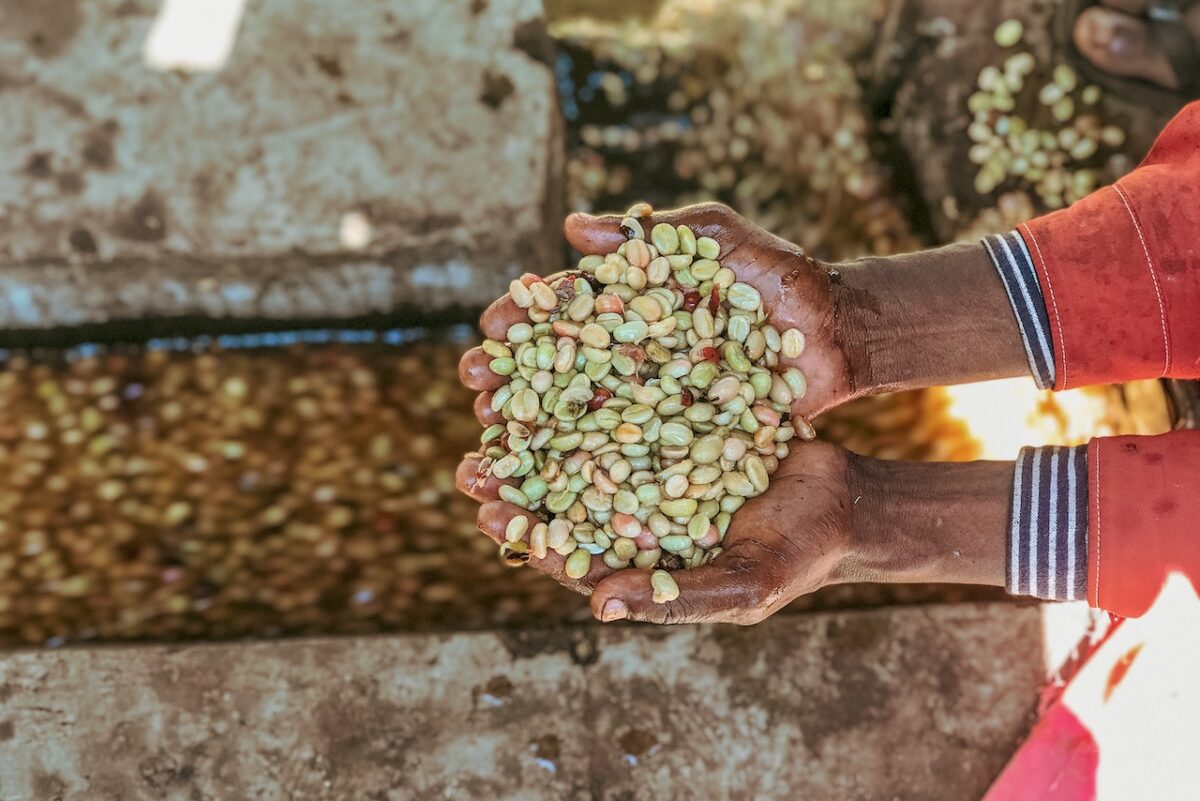
There is no shortcut to improving the quality of coffee. In every step of the chain – from production, processing, roasting, and brewing – small efforts are crucial. And for coffee professionals, their day-to-day work is a daily reminder of this fact.
At Nardos Coffee, every stage of processing follows a meticulously crafted plan. Since weather and geographic conditions vary between regions, the optimal processing method differs accordingly. With its skills and knowledge nurtured over decades of experience, Nardos Coffee processes coffee with precision. It is this expertise that gives the company the flexibility to customize processing methods.
“We try various processing methods after a series of meetings with customers. We try to stay open to any proposal.”
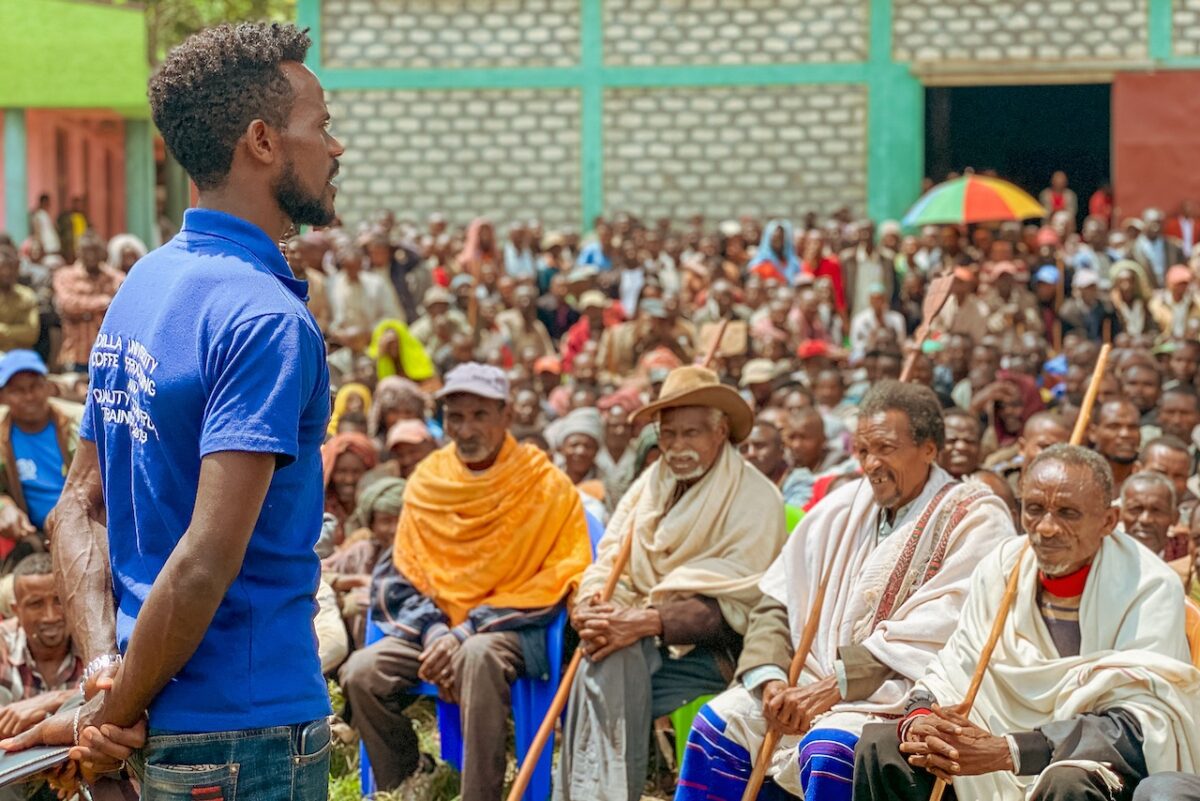
In addition, Nardos Coffee provides technical training to small-holder producers every year, and teaches them how to revive aging coffee trees. These are part of the company’s efforts to share its skills and know-how, passed down over generations. Nardos Coffee also dedicates itself to uplifting the local coffee production as a whole and the community’s living standards. Such initiatives include cultivation and distribution of seedlings to producers and subsidies for high school textbooks.

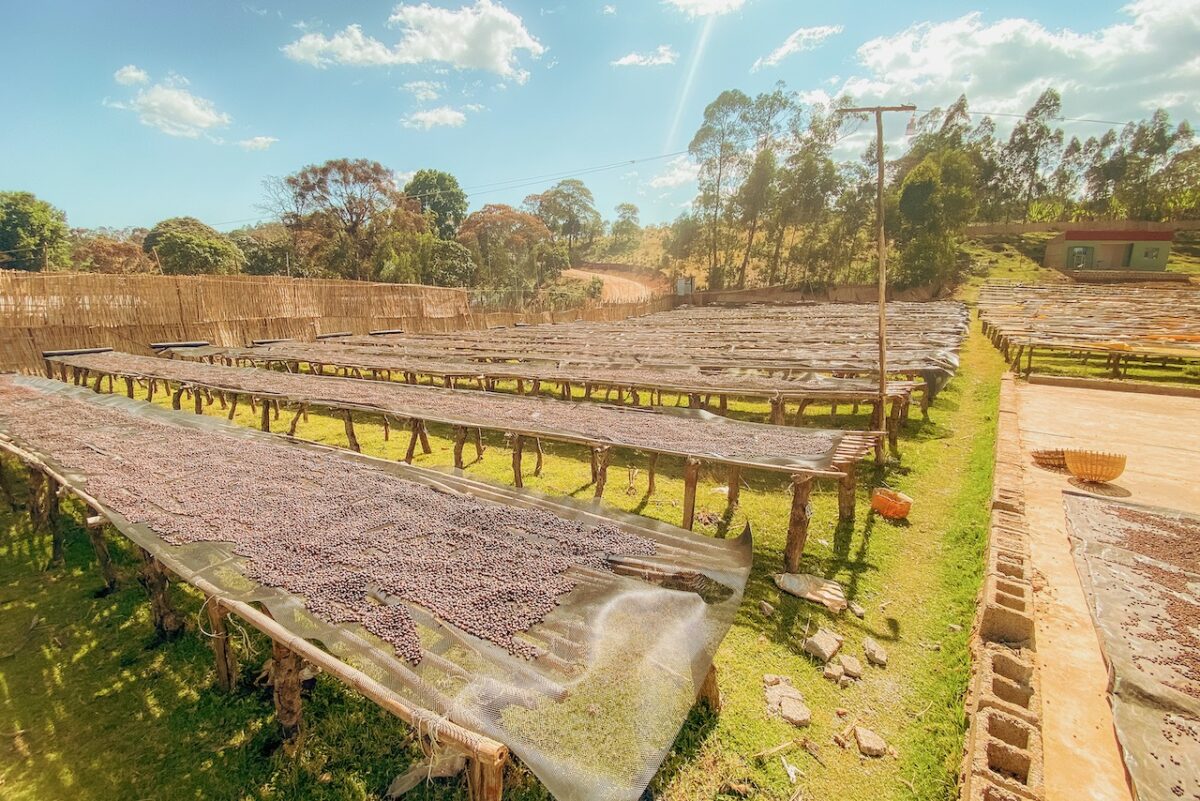
Biniyam’s new chapter in life
Biniyam set off on a new path in 2018. He founded his own business, Gujo Trading – a decision he made after becoming a husband and father. Now with a family to support, he wanted to focus more on his business. His identity and ambitions must have influenced the decision to set up the new company.
Gujo Trading currently runs only one washing station. But it plans to build two more in 2023. With the company’s coffee exports steadily on the rise, Biniyam feels ever more confident.
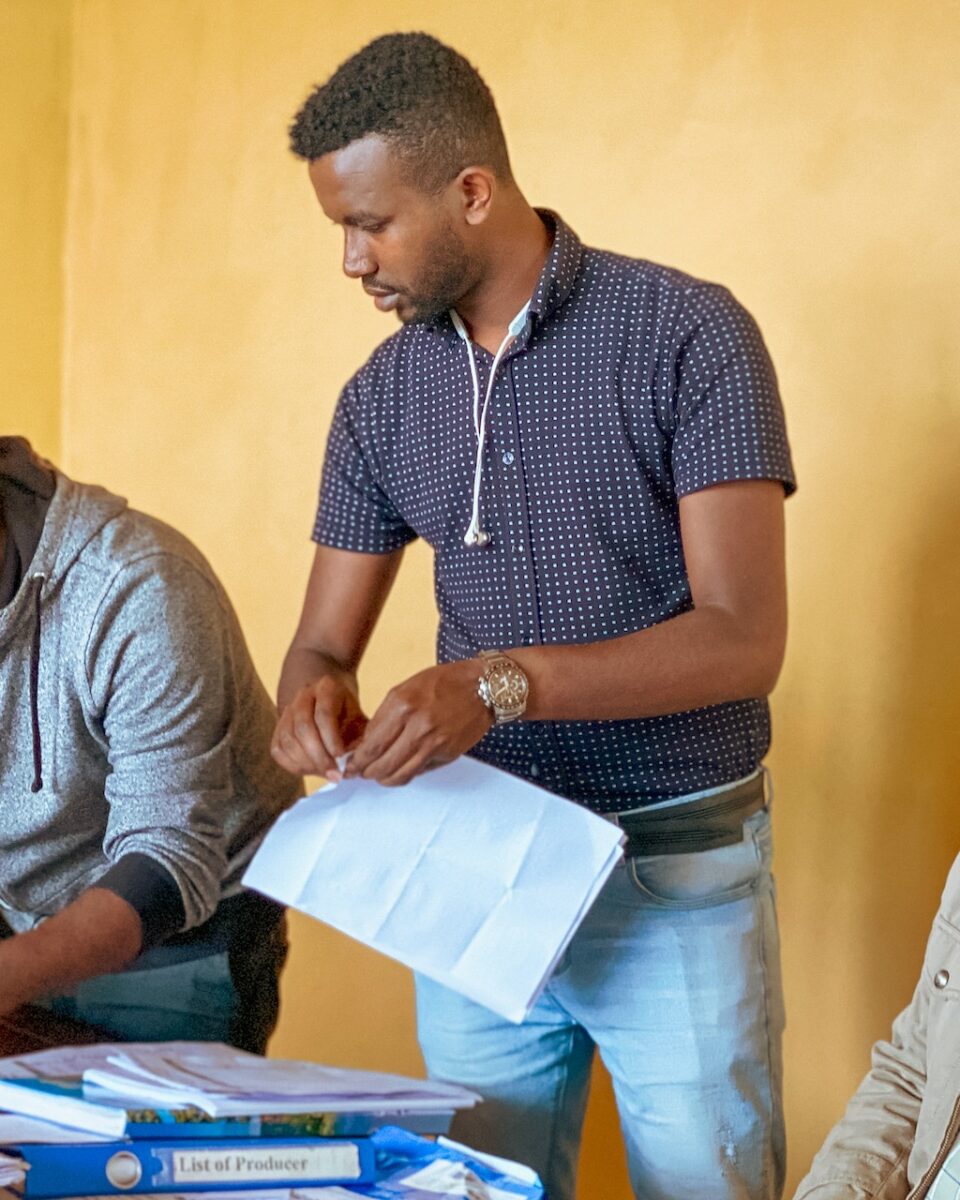
“Our business is still new and small. But going forward, I want to expand it and increase export amounts. That’s not to say my sole purpose is to be bigger. My goal is to become a business that can help those who help us now. I want to see my clients and employees grow with the company.
Specifically, I want to provide all the basic necessities for rural residents, such as clean water and roads. If we expand our export business, we can also help resolve Ethiopia’s chronic shortage of foreign currency. At the end of the day, I want my business to be successful to make Ethiopia a better country.”
Once-closed Ethiopia’s coffee production is now changing from within, thanks to the young generation, including Biniyam. Meeting a young producer like him is a true blessing, one that makes us feel grateful for the fortune to witness such a turning point in the times. In a few years, Ethiopia’s coffee production may experience a seismic shift. Our role is to communicate that dynamism, along with coffee.









